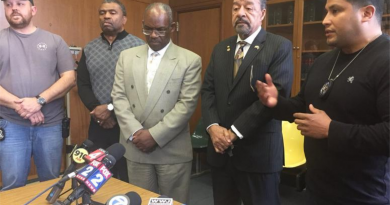UN Issues Call to Protect Children From ‘Potentially Catastrophic’ Economic and Social Effects of Pandemic
“Now is the time to step up international solidarity for children and humanity.” by Julia Conley
World governments must work together to keep the coronavirus pandemic from evolving into “a broader child-rights crisis,” the United Nations said Thursday.
The intergovernmental organization released a policy report on the pandemic’s impact on children around the world, concluding that with 1.5 billion children already affected by school closures and with families around the world losing income due to economic shutdowns, the public health crisis could be “potentially catastrophic for millions of children.”
“We have a chance to not only defeat this pandemic, but to transform the way we nurture and invest in the young generation. But we have to act now, we have to act decisively, and at very large scale.”
—United Nations
“Thankfully, children have so far been largely spared from the most severe symptoms of the disease,” U.N. Secretary-General António Guterres said in a statement. “But their lives are being totally upended.”
Taking steps to shield children from the worst economic effects of the coronavirus could provide a blueprint for supporting vulnerable children around the world after the crisis is over, the UN said.
“We have a chance to not only defeat this pandemic, but to transform the way we nurture and invest in the young generation,” the report read. “But we have to act now, we have to act decisively, and at very large scale. This is not a gradual issue, it is a clarion call for the world’s children, the world’s future.”
On Twitter, the U.N. shared a video detailing the top concerns for children’s well-being as the pandemic continues to spread.
“Children are the hidden victims of the coronavirus crisis,” the U.N. said.
For an estimated 368.5 million children worldwide who rely on school for their daily meals, malnutrition and chronic hunger have become serious concerns since a global school shutdown aimed at stopping the spread of the virus.
The U.N. reiterated calls issued Thursday by the World Food Program and the Food and Agriculture Organization to maintain food supply chains in order to keep vulnerable children from going hungry. While public health experts and economists are urging thoughtfully-enforced closures of businesses and schools to slow the spread of the coronavirus, the report read, “hastily implemented lockdown measures risk disrupting food supply chains and local food markets. If these effects are not quickly resolved they pose potentially grave consequences for food security.”
With physical distancing measures requiring local economies around the world to shut down, the U.N. said, policymakers must prioritize the protection of children who are vulnerable to falling into poverty, as families around the world are subsisting on reduced incomes or have lost incomes entirely.
With the global economy expected to contract by at least 3% this year, an estimated 42 to 66 million children could fall into extreme poverty in 2020, according to the report, adding to the 386 million children who are already living in poverty.
“Income shocks at the household level, even if only temporary, can have devastating effects on children, particularly those living in poor households with limited assets,” read the report.
The U.N. called for “the immediate rollout or expansion of social assistance to families, preferably through the use of universal child grants” to shield children from extreme poverty as a result of the crisis.
Policymakers must also prioritize ensuring that children have access to education while they are unable to attend schools outside their homes, and access to medical care including social and mental health services.
Children and adolescents must have access to testing for the coronavirus as well as treatment and vaccines once they are available, the U.N. said.
The report also demanded that governments protect children who have been displaced from their homes or are migrants by “banning the arrest or detention of children for violating directives relating to COVID-19; ensuring any child that has been arrested or detained is immediately returned to his or her family; and releasing children in detention, whenever possible.”
“Now is the time to step up international solidarity for children and humanity,” the U.N. said, “and to lay the foundations for a deeper transformation of the way we nurture and invest in our world’s youngest generation.”

